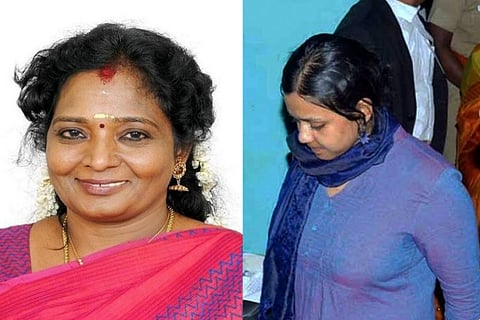

After the news of the arrest of Lois Sofia broke out, a lot of commentators have taken to social media to denounce her for her conduct. Such was the hounding that Lois was constrained to go off Twitter for the sake of her and her family’s security and sanity.
Taking the lead among the vociferous detractors because of his reputation and influential position, Shekhar Gupta, Editor-in-Chief of news and opinion website The Print, tweeted: “Intrigued by a student shouting protest slogans on a plane/in security zone at a fellow passenger becoming a ‘freedom-of-speech’ issue. Global aviation conduct rules post-9/11 are stiff & this is a serious offence world over. This is criminal behaviour, I’m afraid.”
The facts
Contrary to the popular belief in some media circles that facts should not be allowed to get in the way of a good story, it is incumbent to let bring the facts to the forefront, because a person’s liberty and life are at stake here.
Point to be noted: the fracas did not take place while the aircraft was in the air. Lois shouted the slogan while the plane had landed and the passengers were deboarding, as is borne out by what her father Dr Samy, a retired medical practitioner, told TNM – after they landed at the tarmac, they were surrounded and heckled by Tamil Nadu BJP president Tamilisai Soundararajan’s supporters, some of whom even uttered death threats.
Nobody from the aircraft’s crew has lodged any complaint till date.
The law
The venerable Mr Gupta and many others on Twitter have shown remarkable alacrity in condemning Lois’ conduct as “criminal behaviour” and argued that the entire incident is not a freedom of speech issue.
But a close scrutiny at the law and the issue of legality will show how hollow their loud claims are.
The “law” which some of Lois’s detractors are citing is an 8 September 2017 memorandum issued by the Directorate General of Civil Aviation (DGCA) specifying a new Civil Aviation Requirement (CAR) regarding the handling of unruly and disruptive passengers.
Issued under the Aircraft Rules, 1937, and framed in pursuance of the Indian Aircraft Act, 1934, the CAR acknowledges that unruly behaviour of any sort, on board an aircraft or during embarkation and disembarkation, interferes with the performance of crew members’ duties. It also notes that such disruptive behaviour jeopardises the safety of the aircraft, the persons on board and, most importantly, affects good order and discipline on a plane.
First, the critical issue – whether this memorandum has the force of law. In paragraph 1.3, it says that unruly behaviour on board an aircraft is a criminal offence and is punishable by law. But, it is only the legislature – that is, Parliament – which can specify particular acts as crimes, and not the executive, as is the case here.
There is no provision in the criminal laws or any judgement of the apex court which says that unruly behaviour on board an aircraft is a criminal offence, as a noted Madras High Court lawyer, wishing to remain anonymous, told TNM.
The definitions of “unruly behaviour” and a disruptive passenger”” under the CAR are very wide and also somewhat vague to include any passenger who disturbs “good order” and “discipline.”
These terms haven’t been defined in the proposed requirements but include inter-alia individuals who illegally consume narcotics or cigarettes while on board, individuals who refuse to comply with safety instructions, any passenger who verbally or physically confronts a crew members or other passengers or threatens them which could affect the safety of the crew, other passengers and aircraft or any individual who sexually abuses or harasses a member of the crew or another passenger.
As things stand, Lois had not subjected Tamilisai to personal abuse - she had only raised slogans against the ruling BJP. Thus, it is clear that she in no way harassed or threatened a fellow passenger.
More importantly, as legal scholar Gautam Bhatia has written, a rule which is too expansive and vague for interpretation is unconstitutional, as the Supreme Court of India has been ruling over the years. This is specifically true for rules and statutes which impose restrictions on the freedom of expression.
Sanjay Hegde, a senior advocate in the Supreme Court, said that these twin issues – the DGCA’s lack of power to define certain actions as crimes and the vagueness of the rules – makes it abundantly clear that Lois has committed no crime in so far as conduct in an aircraft is concerned.
As for the issue of her slogan, Hegde quipped, “In Communist Russia, a man was sentenced to six months’ imprisonment for calling Nikita Kruschev an idiot. The police booked him for revealing a state secret.”
He, too, was later given bail.
Note: Views expressed in this piece are the author's own.